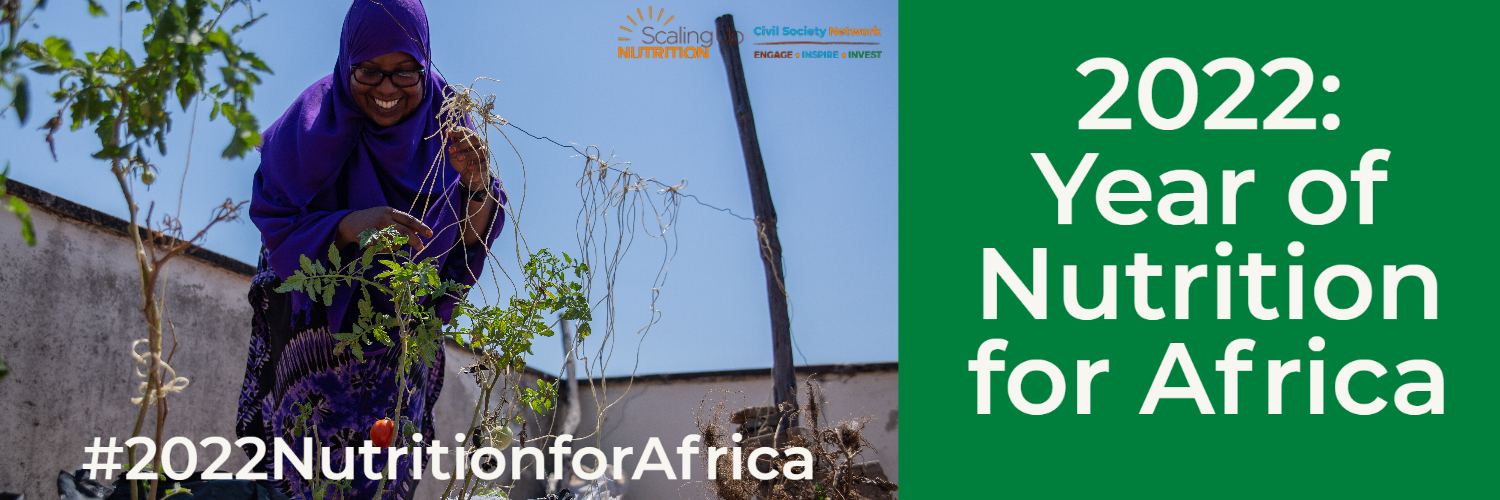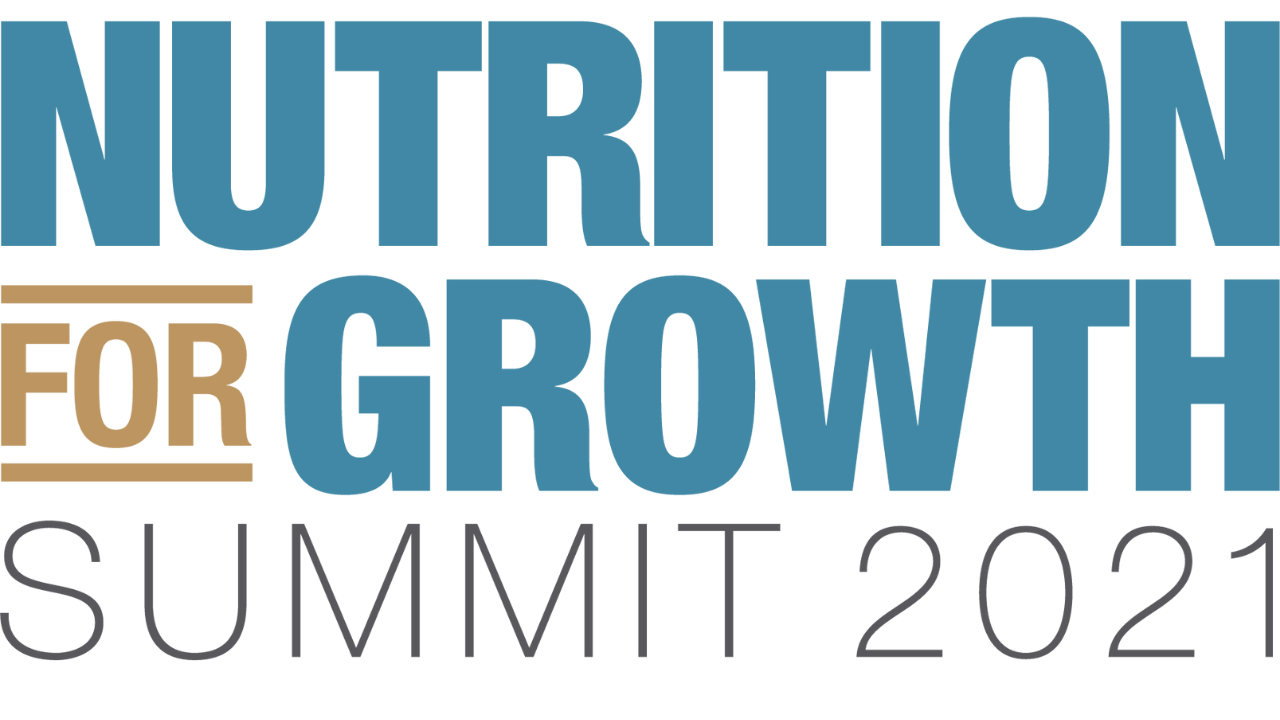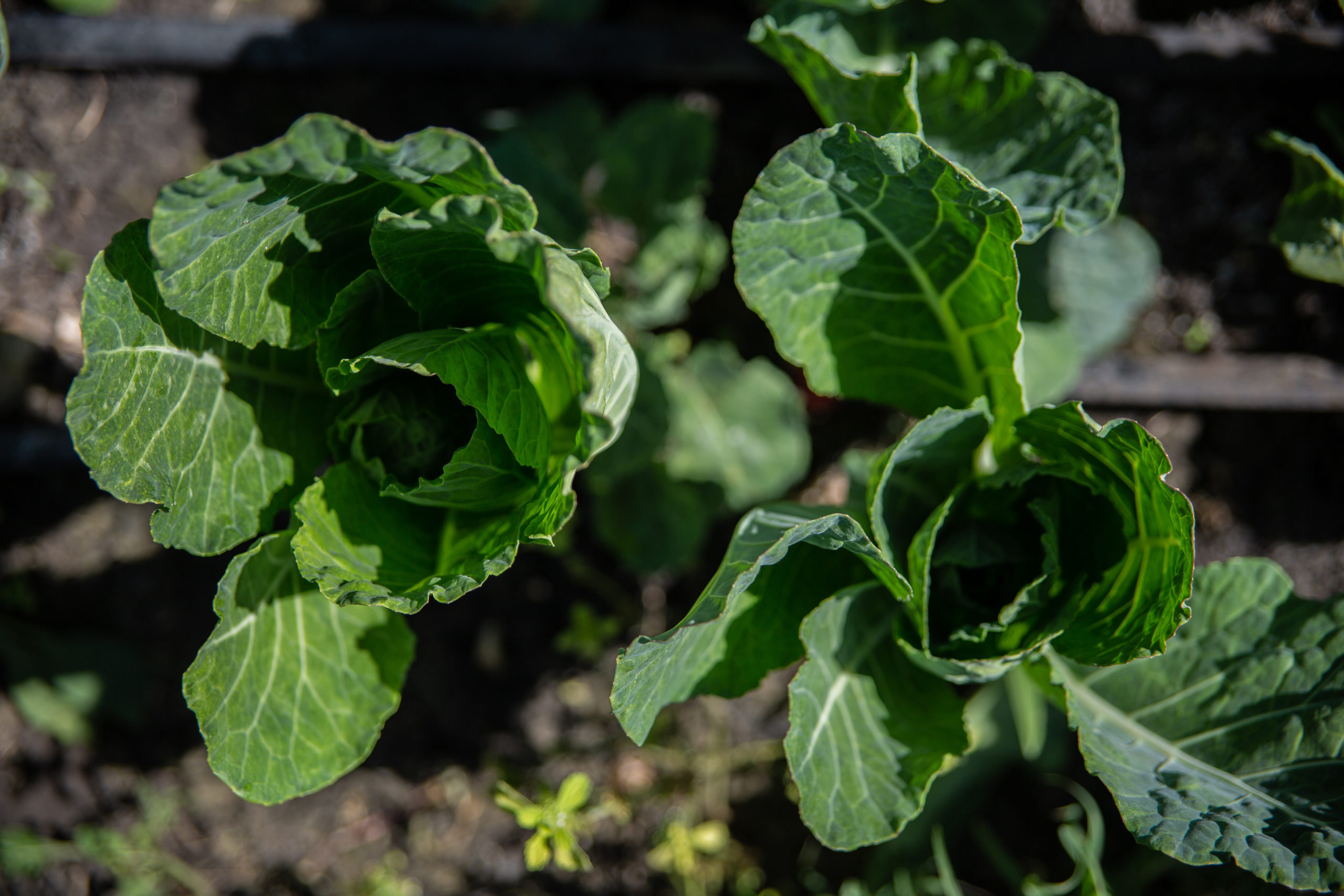At their annual meeting in February of 2022, the African Union declared 2022 ‘The Year of Nutrition for Africa’. This is an exciting initiative as it will shine a spotlight on nutrition in Africa and push for greater political commitment on nutrition and increased investment to address the ongoing malnutrition challenges. The AU will strive […]
ReadAll West and Central Africa region news
Scaling Up Nutrition Civil Society Network Commitment
This week, actors across the nutrition community including representatives from governments, businesses, academics and members of civil society came together to make bold pledges towards the UN nutrition targets at the Nutrition for Growth Summit. The Civil Society Network (CSN) is part of Scaling Up Nutrition (SUN), a world-wide Movement to end malnutrition. Our diverse […]
Read5 things we learnt from the 2020 Civil Society Annual Survey
Our membership is huge! With civil society presence in nearly 50 countries, we always knew we were a large network. But after gathering the data from this year’s Annual Survey we have discovered that we have an incredible 4212 member organisations in the Scaling Up Nutrition Civil Society Network (SUN CSN)!1 This number has increased […]
ReadThe SUN Civil Society Network launches its new 5-year strategy!
Why do we need a new CSN strategy? The Civil Society Network 3.0 strategy (2021-2025) constitutes an essential guide to rally all civil society members’ collective efforts behind a strong mission and vision. The CSN 3.0 strategy was designed for the Network by the Network, in alignment with the overall SUN Movement 3.0 strategy. As such, the […]
ReadMeet the women of the CSN: Victoria Squire
Former National Coordinator, Civil Society Platform Sierra Leone. My work in nutrition I am Victoria Squire, a Seasoned Integrated development project manager, expert facilitator, change agent and accomplished leader with a solid 8 years’ experience managing nutrition and health projects including during emergencies and in the development phase. I am also knowledgeable about Scaling Up […]
ReadMeet the women of the CSN: Funmi Akinyele, Ph.D.
Chief Executive Officer, Food Basket Foundation International (FBFI) My work in nutrition My father, late Professor Isaac Olaolu Akinyele, was the founding Chairman of the Nigerian CSA, the Civil Society Scaling Up Nutrition in Nigeria (CS-SUNN) when it was unofficially established in 2013. Unfortunately, he died shortly after that in February 2014. After I returned […]
ReadMeet the women of the CSN: Victorine Edson ANJARASOA
TAMAFA coordinatrice, Madagascar Je suis coordinatrice de l’association TAMAFA depuis 2003 jusqu’à ce jour. Je suis décidée à travailler sur la nutrition car il y a beaucoup d’enfants victime de la malnutrition chez nous à Madagascar, région Toliara. Stratégie pour élever les femmes au rang de leadership: il faut les responsabiliser et leur apprendre la […]
ReadMeet the women of the CSN: Beatrice Eluaka
Coordinator of CSS+UNN, Nigeria My work in nutrition I am Lead for the Scaling Up Nutrition’s programming in Nigeria. I perform Country Office Oversight, Country Program Development, Country project /program implementation and Country Program Representation whilst contributing to strategic and operational development and delivery of programs in line with the SUN CSN mandate, strategy and […]
ReadMeet the women of the CSN: Jane Whyte
Senior MEAL Officer, Nigeria My work in nutrition My name is Jayne Whyte and I work with the Civil Society Alliance in Nigeria as a Senior MEAL Officer. I think women’s nutrition and the role women play in scaling up nutrition is particularly important to me because women and girls are at the heart of development. […]
ReadPrioritising Youth Voices During the Year of Action for Nutrition for Growth
2021: A year overflowing with opportunities It’s 2021, and although very little may have changed so far in comparison to 2020 (come on, vaccines!), there has already been a huge shift: it is now officially the Year of Action for Nutrition. Last year, the COVID-19 pandemic resulted in devastating losses to the decades of progress on […]
Read2021: A year overflowing with opportunities
It’s 2021, and although very little may have changed so far in comparison to 2020 (come on, vaccines!), there has already been a huge shift: it is now officially the Year of Action for Nutrition.
Last year, the COVID-19 pandemic resulted in devastating losses to the decades of progress on nutrition, but this year can be different. 2021 is overflowing with opportunities for the world to take meaningful action to reverse those losses. Together, we can build back better – with a focus on nutrition as a fundamental part of recovery.
Throughout the year’s key events, including the World Health Assembly, the Food Systems Summit, COP26 and UNGA, and culminating in the Nutrition for Growth Summit in December, governments and businesses will have the opportunity to demonstrate their commitment to a world free from malnutrition in all its forms by making new policy and financial commitments.
It is crucial that any new nutrition commitments take into account the perspectives and experiences of young people – and for this reason, it is vital that young people are positioned at front and centre of nutrition advocacy.
Why youth voices are important
The health and nutrition of adolescents are becoming global priorities. There are over 1.2 billion adolescents aged 10-19 in the world1 and nearly a quarter of the people in Sub-Saharan Africa are aged 10 to 192. Different stages of the life cycle dictate differing nutrient needs. Due to the spurt of growth that occurs in adolescence, several nutrients are at greater deficiency risk, including iron and calcium. To develop to their optimal potential, it is vital that adolescents choose nutritionally sound diets. This may spell the difference between health and risk of disease in later years.
Adolescents themselves have the best understanding of young people’s needs, how to address them, and how to get them involved. Because of this, youth voices can be an incredibly powerful force for bringing about the changes they want to see.
Listening to young people not only makes sense when considering nutrition interventions for children and young people – it is also an ethical issue. Children and young people have a right to participation and to be heard. They will inherit the problems that the world is currently facing (and in some cases, creating), so their solutions should be taken seriously. But as Mike Khunga, Youth Leader for Nutrition from Malawi, so elegantly put in a recent blog, “[young people] are the future, but we are also the present.” They are often hit hardest by global challenges such as pandemics and economic recessions, and their lived experiences need to be at the forefront of conversations about how to solve these challenges.
How the Youth Leaders for Nutrition have been raising their voices
Since 2018, the SUN CSN Youth Leaders for Nutrition have been raising their voices on behalf of young people all around the world to advocate for an end to malnutrition in their own communities and globally. The Youth Leaders have a wealth of experience speaking at high-level events and conferences such as the UN General Assembly, SUN Global Gathering, IFAD, and many more.
Throughout the COVID-19 pandemic, the Youth Leaders have continued to exercise their influence by speaking at online events, writing blogs, and much more, working with organisations including UNICEF and Save the Children. The Youth Leaders even set up their own webinar for World Food Day 2020!
Working with the Youth Leaders for Nutrition
If you have an upcoming event or other advocacy opportunity and you would like to work with the Youth Leaders for Nutrition, please download and complete our Opportunity Form and send it to Hannah Taaffe, Advocacy and Youth Advisor at the SUN CSN Secretariat.
Youth Leader Opportunity Application Form
1 UNICEF, October 2019 (https://tinyurl.com/29fje3s9)
2 UNICEF, October 2019 (https://data.unicef.org/topic/adolescents/demographics/)











